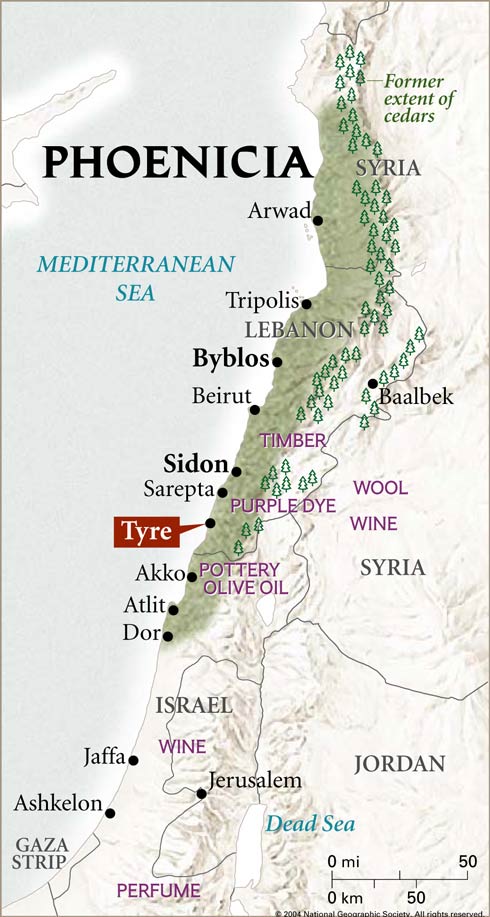Index Dutch Bronze Age
Index first farmers in the Netherlands
Phoenicians
Although they're mentioned frequently in ancient texts as vigorous traders and sailors, we know relatively little about these puzzling people. Historians refer to them as Canaanites when talking about the culture before 1200 B.C.E. The Greeks called them the phoinikes, which means the "red people"a name that became Phoeniciansafter their word for a prized reddish purple cloth the Phoenicians exported. But they would never have called themselves Phoenicians. Rather, they were citizens of the ports from which they set sail, walled cities such as Byblos, Sidon, and Tyre.
The culture later known as Phoenician was flourishing as early as the third millennium B.C.E. in the Levant, a coastal region now divided primarily between Lebanon, Syria, and Israel. But it wasn't until around 1100 B.C.E., after a period of general disorder and social collapse throughout the region, that they emerged as a significant cultural and political force.
From the ninth to sixth centuries B.C.E. they dominated the Mediterranean Sea, establishing emporiums and colonies from Cyprus in the east to the Aegean Sea, Italy, North Africa, and Spain in the west. They grew rich trading precious metals from abroad and products such as wine, olive oil, and most notably the timber from the famous cedars of Lebanon, which forested the mountains that rise steeply from the coast of their homeland.
The armies and peoples that eventually conquered the Phoenicians either destroyed or built over their cities. Their writings, mostly on fragile papyrus, disintegratedso that we now know the Phoenicians mainly by the biased reports of their enemies. Although the Phoenicians themselves reportedly had a rich literature, it was totally lost in antiquity. That's ironic, because the Phoenicians actually developed the modern alphabet and spread it through trade to their ports of call.
Acting as cultural middlemen, the Phoenicians disseminated ideas, myths, and knowledge from the powerful Assyrian and Babylonian worlds in what is now Syria and Iraq to their contacts in the Aegean. Those ideas helped spark a cultural revival in Greece, one which led to the Greeks' Golden Age and hence the birth of Western civilization. The Phoenicians imported so much papyrus from Egypt that the Greeks used their name for the first great Phoenician port, Byblos, to refer to the ancient paper. The name Bible, or "the book," also derives from Byblos.
Get the whole story in the pages of National Geographic magazine

More information about the writer / editor